It’s one of Wright State University’s longest legacies of excellence.
Founded in 1970, Wright State’s Model United Nations program is open to students of all majors who interview in the fall to participate in the three-credit-hour political science class during Spring Semester.
But Model U.N. is no ordinary class. It requires stellar research skills, poised public speaking abilities, clear and concise writing, and just the right amount of grit, determination, and hard work.
As history shows, Wright State’s Model U.N. program clearly found the secret to its success long ago. For 41 years, Wright State’s student delegates have earned top awards at the National Model U.N. Conference—a winning streak unmatched by any other university.
“Model U.N. is built on mentorship, partnership, and practice. Returning students and head delegates provide peer training, and we emphasize speaking and writing over and over until it is second nature,” said Vaughn Shannon, professor of political science, who serves as a faculty advisor to the team, along with Liam Anderson, professor of political science.
“Also, it’s rewarding work,” said Shannon. “The students are transformed over the year and can take pride in their own growth and the perpetuation of the program’s greatness.”
While the COVID-19 pandemic may have prevented Model U.N. delegates from gathering at the United Nations in New York City, the spring 2021 conference moved forward online. Wright State’s team represented the United Kingdom and received the top award of Outstanding Delegation. Four Wright State students won Outstanding Position Paper Awards, and three students earned Outstanding Delegates in Committee Awards.
Model U.N. alumni credit the program for laying the groundwork for their success in their chosen careers. Former team members share their favorite memories from their days of competition, the skill sets and lessons learned, and what they’re doing today.
Pablo Banhos ’06, ’09
At the age of 15, Pablo Banhos came to the United States from Brazil with two dreams—to swim in the Olympics and to study in an American university. While his dream of pursuing the Olympics never became a reality, he did have the opportunity to study—and swim—at Wright State.
While training at the International Swimming Hall of Fame in Florida, Banhos was recruited by Wright State’s former swimming and diving coach, Matt Liddy. During his first four years on campus, Banhos was consumed by his classes, training, and swimming competitions and had little time for anything else. As he was wrapping up his undergraduate degree and getting ready to start his master’s program, Banhos joined the Model U.N. team.
He credits Model U.N. for building his confidence and helping him deal with pressure. For Banhos, one of those pressures was living up to Wright State’s long tradition of taking top honors at the annual Model U.N. conference.
“The program is wildly successful,” he said. “Every year, my classmates and I didn’t want to drop the ball. We did not want to be the team that was going to stop the winning streak.”
Banhos remains grateful for all of the life-changing experiences Model U.N. provided, including a trip to China for an international Model U.N. conference. To this day, his mother still brags that he was part of Wright State’s award-winning Model U.N. team.
Banhos is also thankful Wright State provided him with an unexpected career path. As a student, he began interning in Wright State’s development and alumni relations offices. Although he originally wanted to be a university professor, Banhos realized he could still make a positive impact in the lives of students by working in higher education fundraising to secure resources for scholarships and programs.
Banhos worked as a fundraiser at Wright State from 2008 to 2013 before moving on to Ohio Wesleyan University. Two years ago, he joined the College of Education and Human Ecology at The Ohio State University, where he serves as the executive director of development and alumni relations.
“If it were not for a scholarship from passionate and generous donors, I would not be here today,” said Banhos. “I’m passionate about the power of higher education to not only transform the lives of students, but the lives of their families.”
For Banhos, one of his most meaningful philanthropy initiatives was collaborating with his mentor, Donna Schlagheck, to raise money for the Model U.N. scholarship.
“Model U.N. changed my life and the lives of so many others,” he said. “I am forever grateful for the opportunity that I had at Wright State. I feel a responsibility to pay it forward so another student can benefit from this program, and we can maintain the legacy.”
Sonia Gupta Barros ’92
Sonia Gupta Barros entered Wright State with two interests—business and the law. As a dual major in accounting and finance, Barros began exploring activities she could get involved in to hone her skills and help prepare her for law school. It was during a political science class with Jim Jacob that she first learned about the Model U.N. team.
Knowing it was highly competitive to make the team, Barros was nervous about facing the interview panel of senior Model U.N. delegates and the faculty advisors.
“It was a difficult interview,” she recalled. “I remember sitting there at the table with those other students and the faculty, just hoping that I had passed the bar to make the team.”
Once she made the team, Barros found the preparation process for the annual Model U.N. conference to be first class.
“You have to have a certain kind of intensity and skill set and desire to be on the team,” she explained. “And then it’s the rigor of the preparation. I can’t tell you how much I credit going through that rigorous process—with the speaking and the writing—for giving me the skills that I have today. They are critical for what I do as a lawyer.”
After graduation, Barros practiced as a C.P.A. at Deloitte and then went on to The University of Chicago Law School. She joined a law firm in Chicago as a corporate transactional attorney and later relocated to Washington, D.C., where she worked at the U.S. Securities and Exchange Commission for 17 years. In March 2021, Barros returned to the private sector, joining Sidley Austin LLP as a partner in their capital markets practice.
“I like helping companies solve problems. It’s thinking about issues through this complex lens that I find rewarding and gratifying,” she said. “I go back to issue spotting, problem solving, and critical thinking—those were skills that we worked on a lot in the Model U.N. program. I’m just thankful for having such a great foundation in that program at Wright State. It’s made me effective throughout my entire career.”
Sarah Hackenbracht ’03
Sarah Hackenbracht’s journey at Wright State took an unexpected turn when she changed her major from vocal performance to political science. It was that same twist that led her to Model U.N.
“That program was absolutely fundamental to my experience at Wright State. It exposed me to a different way of seeing myself and my skills and abilities. It bolstered my confidence so I would be successful out in the professional world,” said Hackenbracht. “I can truly draw almost a straight linear line to where I am now from what I did in the Model U.N. program.”
Today, Hackenbracht serves as president and CEO of the Greater Dayton Area Hospital Association, which works with 29 hospitals and health care systems across the Dayton region.
In a typical year, the association would spend much of its time advocating at the local, state, and federal level on various issues impacting hospitals or building coordinated programs, like those on infant mortality and advanced care planning, to improve the overall health of the community.
“COVID-19 upended our year. It became 90 percent of what we did in 2020 as an association,” said Hackenbracht. “As a small nonprofit with a small team, we had to redeploy ourselves to make sure we were covering all of the different components of COVID-19 to support our members.”
Hackenbracht first became aware of the importance of quality health care as she began researching health care and HIV/AIDS for her first committee assignment as a Model U.N. delegate.
“That started to open up my worldview to understand the luxury of health care that we have in this country is very different than what many people experience in developing countries around our globe,” she explained.
Achieving a workable solution and building consensus are two skills Hackenbracht learned in her Model U.N. committee work that she still uses today.
“I see that every single day in the work that I do. I see our hospitals work together on every single issue. That is something that is very unique,” she said. “There is competition in health care, but when we sit down at the table for an issue, everyone comes to the table with a desired commitment to improve the situation for the people in our community.”
As she looks back, Hackenbracht acknowledges that her life might have turned out differently were it not for Model U.N. The team’s faculty advisors, Donna Schlagheck and Laura Luehrmann, helped her to see opportunities she had not seen before.
“I would not be where I am without the leadership and the coaching and the kindness of Dr. Schlagheck and Dr. Luehrmann,” said Hackenbracht. “They were truly some of the first female leaders who I saw, as a young woman, excelling in their field and earning the respect of their colleagues. They were prepared, polished, professional. They worked through hard issues, and they made everyone feel that they had value and a voice in every conversation.”
Bill Murphy ’91,’98
Bill Murphy remembers what it was like to do research before the internet. During his tenure on the Model U.N. team, Murphy and his fellow delegates would have to research the positions of the country they were representing at one of the Model U.N. repository libraries. The two closest were at Indiana University and the University of Kentucky.
“We would spend our weekends going to one of those libraries,” Murphy recalled. “I have very fond memories of our day trips. It gave you a lot of time to build strong, personal relationships with your teammates. It was a tremendous learning experience and personal bonding opportunity with friends I still have today.”
Thirty years later, Murphy has nothing but praise for his Model U.N. experience and the preparation it provided for his career in economic development.
“I believe it was the reason I am successful today,” said Murphy, who joined the Kansas Department of Commerce last year as deputy secretary. “Being involved with the national Model U.N. program gives you not only professional development opportunities, it also opens your eyes to different perspectives.”
That ability to navigate through policy, politics, and perspectives is critical to Murphy’s mission to help Kansas regain its economic development prowess.
“I’m working on projects that span industries from aerospace to distribution to office headquarters operations,” he explained. “I get to work with local community partners from big cities to smaller communities. It’s that diversity of work that really keeps me motivated.”
As he reflects on his Wright State and Model U.N. experience, Murphy credits strong leadership for the program’s four decades of excellence.
“There were two incredible professors who ran the program—Dr. Jim Jacob and Dr. Donna Schlagheck. They were absolutely the best of the best in terms of their knowledge of political science and the United Nations and the Model U.N. program,” said Murphy. “I still talk about those two individuals as some of the most impactful people in my life.”
Jonathan White ’93
Despite his father’s urging, Jonathan White never intended to go to college. He wanted to be a tool and die maker like his dad. But that all changed when White made his first trip to Washington, D.C., during his senior year of high school.
“I was just immediately amazed by the town,” White recalled. “I remember my civics teacher telling me that the price of admission was an undergraduate degree if I wanted to work in one of these buildings that I thought was so cool.”
A cross-country runner, White was recruited by Wright State to join the cross-country team. During his sophomore year, he learned about the Model U.N. program from political science Professor Jim Jacob, who served as a faculty advisor to the team, along with Donna Schlagheck. After joining the team, White became immersed in all of the preparation involved—from honing his research and writing talents to polishing his public speaking and presentation skills.
“It was a foundational experience in my education. The skills I learned there I still use today,” said White.
One of White’s favorite memories is visiting the Permanent Mission of Austria to the United Nations during the Model U.N. conference in New York. The team’s white paper, which highlighted Austria’s position on various policy issues, had been sent to Austria’s Ambassador to the UN staff in advance.
Austria’s Ambassador walked into the conference room with the white paper and said, “This could have been written by my team.” White was ecstatic. For the kid who grew up in a small, rural community and never wanted to go to college, it was the ultimate compliment.
White entered the Army after graduation. He became a Green Beret and served all over the world, including several deployments to Afghanistan. His dream of working in Washington, D.C., finally came true when he was assigned to the Pentagon.
Just as he was getting ready to retire, White, who had risen to the rank of colonel, was offered a position in the White House on the National Security Council as the director for Afghanistan.
“I never thought I would end up at the White House,” said White, who remembers walking out of the White House after he was offered the job. The first person he called after his wife and his parents was Jim Jacob.
In 2019, White retired from the Army and took a position with the Bechtel Corporation, one of the largest engineering, procurement, and construction firms in the U.S. The company has worked on such large-scale projects as Hoover Dam and the Channel Tunnel (Chunnel), which connects England and France.
“I wanted to take a break from the government and national security space and work for a company that actually builds stuff,” said White. “It’s a great company, and I’m really proud to work there.”
To support Wright State’s Model United Nations program, please visit wright.edu/give/munprogram.
This article was originally published in the fall 2021 issue of the Wright State Magazine. Find more stories at wright.edu/alumnimag.

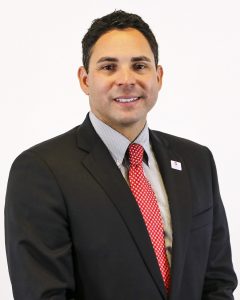
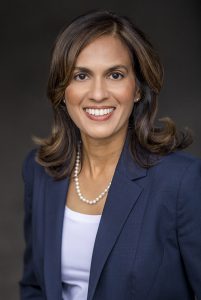
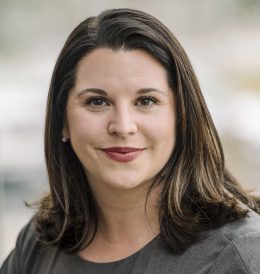
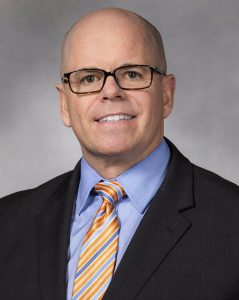
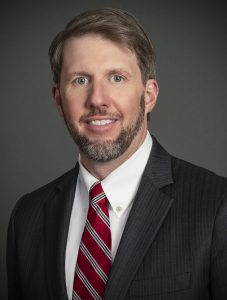
 Wright State alum Lindsay Aitchison fulfills childhood space-agency dream
Wright State alum Lindsay Aitchison fulfills childhood space-agency dream  Wright State business professor, alumnus honored by regional technology organizations
Wright State business professor, alumnus honored by regional technology organizations  Wright State University Foundation awards 11 Students First Fund projects
Wright State University Foundation awards 11 Students First Fund projects  Gov. DeWine reappoints Board Treasurer Beth Ferris and names student Ella Vaught to Wright State Board of Trustees
Gov. DeWine reappoints Board Treasurer Beth Ferris and names student Ella Vaught to Wright State Board of Trustees  Joe Gruenberg’s 40-Year support for Wright State celebrated with Honorary Alumnus Award
Joe Gruenberg’s 40-Year support for Wright State celebrated with Honorary Alumnus Award 